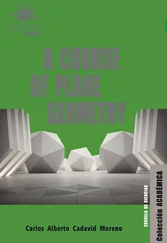Marian Wharton - Plain English
Здесь есть возможность читать онлайн «Marian Wharton - Plain English» — ознакомительный отрывок электронной книги совершенно бесплатно, а после прочтения отрывка купить полную версию. В некоторых случаях можно слушать аудио, скачать через торрент в формате fb2 и присутствует краткое содержание. Жанр: foreign_edu, foreign_language, на английском языке. Описание произведения, (предисловие) а так же отзывы посетителей доступны на портале библиотеки ЛибКат.
- Название:Plain English
- Автор:
- Жанр:
- Год:неизвестен
- ISBN:нет данных
- Рейтинг книги:5 / 5. Голосов: 1
-
Избранное:Добавить в избранное
- Отзывы:
-
Ваша оценка:
- 100
- 1
- 2
- 3
- 4
- 5
Plain English: краткое содержание, описание и аннотация
Предлагаем к чтению аннотацию, описание, краткое содержание или предисловие (зависит от того, что написал сам автор книги «Plain English»). Если вы не нашли необходимую информацию о книге — напишите в комментариях, мы постараемся отыскать её.
Plain English — читать онлайн ознакомительный отрывок
Ниже представлен текст книги, разбитый по страницам. Система сохранения места последней прочитанной страницы, позволяет с удобством читать онлайн бесплатно книгу «Plain English», без необходимости каждый раз заново искать на чём Вы остановились. Поставьте закладку, и сможете в любой момент перейти на страницу, на которой закончили чтение.
Интервал:
Закладка:
So think while you study. Do not try to learn rules and formulas. See why the rules and formulas exist. Once having seen this you do not need to learn them—you know them already. The study of any language is an intellectual discipline of the highest order.
So apply yourself diligently to this most interesting study and you will see that the result of this application will affect your daily life in every particular.
Yours for Education, THE PEOPLE'S COLLEGE.WORDS ADDED TO NOUNS
33.When man began to invent words to express his ideas of the world in which he lived, we have found that probably the first need was that of names for the things about him. So we have nouns. The second need was of words to tell what these things do , and so we have verbs. But primitive man soon felt the need of other classes of words.
The objects about us are not all alike. For example, we have a word for man, but when we say man that is not sufficient to describe the many different kinds of men. There are tall men, short men, white men, black men, strong men, weak men, busy men, lazy men. There are all sorts of men in the world, and we need words by which we can describe these different types and also indicate which man we mean.
34.So we have a class of words which are called adjectives. Adjective is a word derived from the Latin. It comes from the Latin word ad , meaning to , and the Latin word jecto , which means to throw ; hence an adjective is a word thrown to or added to a noun.
If you will stop to think for a moment, you will see that it is by their qualities that we know the things about us. Some men are strong, some are weak, some are tall, some are short. These qualities belong to different men. And we separate or group them into classes as they resemble each other or differ from one another in these qualities. Things are alike which have the same qualities; things are unlike whose qualities are different. Apples and oranges are alike in the fact that both are round, both are edible. They are unlike in the fact that one is red and one is yellow; one may be sour and the other sweet. So we separate them in our minds because of their different qualities; and we have a class of words, adjectives , which describe these various qualities.
35.We use adjectives for other purposes also. For example, when we say trees , we are not speaking of any particular trees, but of trees in general. But we may add certain adjectives which point out particular trees, as for example: these trees, or those trees, or eight trees or nine trees. These adjectives limit the trees of which we are speaking to the particular trees pointed out. They do not express any particular qualities of the trees like the adjectives tall or beautiful express, but they limit the use of the word trees in its application. So we have our definition of the adjective.
36. An adjective is a word added to a noun to qualify or limit its meaning.
Exercise 1
Underscore all of the adjectives in the following quotation. Notice also the nouns and verbs in this quotation.
Yet fearsome and terrible are all the footsteps of men upon the earth, for they either descend or climb.
They descend from little mounds and high peaks and lofty altitudes, through wide roads and narrow paths, down noble marble stairs and creaky stairs of wood—and some go down to the cellar, and some to the grave, and some down to the pits of shame and infamy, and still some to the glory of an unfathomable abyss where there is nothing but the staring, white, stony eye-balls of Destiny.
They descend and they climb, the fearful footsteps of men, and some limp, some drag, some speed, some trot, some run—they are quiet, slow, noisy, brisk, quick, feverish, mad, and most awful in their cadence to the ears of the one who stands still.
But of all the footsteps of men that either descend or climb, no footsteps are so fearsome and terrible as those that go straight on the dead level of a prison floor, from a yellow stone wall to a red iron gate.—From The Walker . Giovannitti.
WORDS ADDED TO VERBS
37.From our study, you see how our classes of words grew out of man's need of them in expressing his thoughts. And notice also how the many thousands of words in our language can all be grouped under these few classes. We name the things about us; we invent words to tell what these things do ; we have another class of words which describe the things which we have named; and now we come to a fourth class of words for which we also find great need.
When we come to tell what things do , we find that we need words which will tell us how or where or when these things are done. Notice the following sentences:
The men work busily.
The men work late.
The men work now.
The men work here.
The men work hard.
The men work well.
The men work inside.
The men work more.
We would have a complete sentence and express a complete thought if we said simply, The men work , but each of these words which we have added, like busily , hard , late , etc., adds something to the meaning of the verb. These words add something to the action which is asserted by the verb, for they show how and when and where and how much the men work.
38.We call this class of words adverbs , because they are added to verbs to make the meaning more definite, very much as adjectives are added to nouns. Adverb means literally to the verb .
An adverb will always answer one of these questions: how? when? how long? how often? how much? how far? or how late? If you want to find the adverbs in your sentences just ask one of these questions, and the word that answers it will be the adverb.
39.An adverb may be used also with an adjective. Notice the following sentences:
The book is very long.
Too many people never think.
Notice here that the adverbs very and too modify the adjectives long and many .
40.Adverbs may also be used with other adverbs. Notice the following sentences:
He speaks very distinctly.
He walks too slowly.
Here the adverbs very and too are used with the adverbs distinctly and slowly , and add to their meaning. We will study more fully in later lessons concerning both the adjective and the adverb, but we can see by this brief study why adverbs were added as a class of words, a part of speech, for they are absolutely necessary in order to describe the action expressed by verbs, and also to add to the meaning of adjectives and other adverbs. Hence we have our definition of an adverb.
41. An adverb is a word that modifies the meaning of a verb, an adjective, or another adverb.
Exercise 2
Underscore all adverbs in the following sentences:
1. He will not come today.
2. Here and now is the day of opportunity.
3. Very slowly, but even then entirely too rapidly, the fire crept forward.
4. The room was very quiet and still.
5. He was too weary to go farther.
6. One must learn to feel deeply and think clearly in order to express himself eloquently.
7. Ferrer stood there, so calmly and so bravely facing the firing squad.
Читать дальшеИнтервал:
Закладка:
Похожие книги на «Plain English»
Представляем Вашему вниманию похожие книги на «Plain English» списком для выбора. Мы отобрали схожую по названию и смыслу литературу в надежде предоставить читателям больше вариантов отыскать новые, интересные, ещё непрочитанные произведения.
Обсуждение, отзывы о книге «Plain English» и просто собственные мнения читателей. Оставьте ваши комментарии, напишите, что Вы думаете о произведении, его смысле или главных героях. Укажите что конкретно понравилось, а что нет, и почему Вы так считаете.












